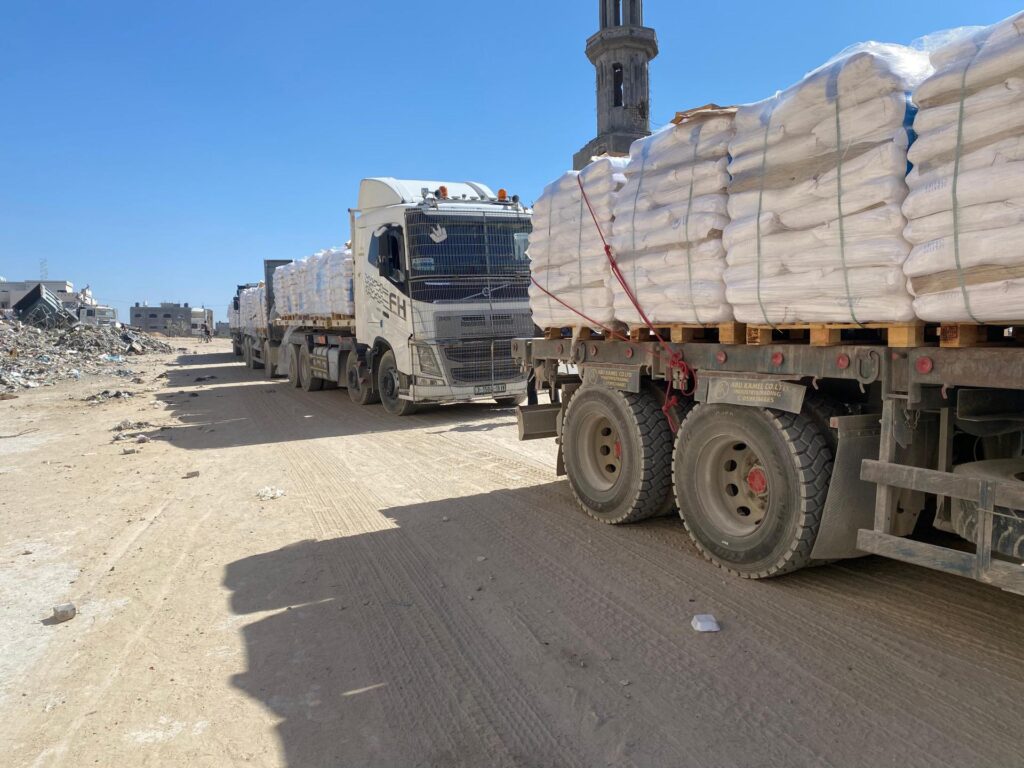10/17/2024–|Last updated: 10/17/202410:03 PM (Mecca time)
Israel has stopped processing traders’ requests to import food into the Gaza Strip, according to 12 people working in the trade, strangling a route that over the past six months supplied more than half of the besieged Palestinian enclave’s needs.
Since October 11, Gaza-based merchants who were importing food from Israel and the occupied West Bank have been unable to access the system introduced in the spring by COGAT, the Israeli government body that oversees aid and commercial shipments. They receive no response.
A Reuters analysis of official Israeli data showed that this shift led to a decline in the flow of goods arriving in Gaza to its lowest level since the beginning of the war.
The Government Coordination Unit did not respond to Reuters’ questions about commercial food imports and aid to Gaza.
Between October 1 and 16, the total flow of shipments into Gaza – including aid and commercial goods – fell to a daily average of 29 trucks, according to statistics from the Office for the Coordination of Government Activities. This compares to a daily average of 175 trucks between May and September, the data show.
Commercial shipments – goods purchased by local merchants, transported by trucks after obtaining direct approval from the Government Coordination Unit, and then sold in markets in Gaza – constituted about 55% of the total during that period.
Two sources involved in food supplies said that the reason for stopping commercial shipments was Israel’s concern that Hamas was obtaining revenues from imports.
A spokesman for the Islamic Resistance Movement (Hamas) denied these allegations and explained that the movement is trying to ensure the distribution of aid in Gaza. He noted that the closure came at a time when Israel launched a new military operation in northern Gaza, a development that led to the obstruction of the delivery of humanitarian aid.
Catastrophic hunger
The United Nations World Food Program said in a statement on Sunday that the operation halted the delivery of all aid through crossings in the north for at least two weeks this month.
A series of measures taken by Israeli government departments and the army have reduced food deliveries to Gaza.
In August, Israeli authorities introduced a new customs rule on one of the aid channels and began to reduce the separate route of commercial goods.
The Global Food Security Monitor issued a new warning on Thursday. The Integrated Food Security Phase Classification (IPC) said the recent escalation in hostilities could lead to a doubling of the number of people in Gaza suffering from “catastrophic” hunger.
Before the war, about 500 trucks entered Gaza daily carrying a mix of aid and commercial imports, such as food, building materials and agricultural supplies.
Reuters spoke with 5 importers in Gaza, two businessmen who send goods from the West Bank, a business official in Gaza, and three people involved in delivering aid. Ibrahim Baraka, a resident of southern Gaza, said, “The situation has become miserable.”
“We have some non-perishable aid, but there is almost no fresh produce left. A kilo of onions costs $15 in southern Gaza,” he added. Five other residents, seven traders, and five humanitarian workers confirmed his story.
The main source of food for Gazans who cannot buy from local markets remains international humanitarian aid organized by the United Nations, which is subject to security approval by the Office for the Coordination of Government Activities for each shipment.


